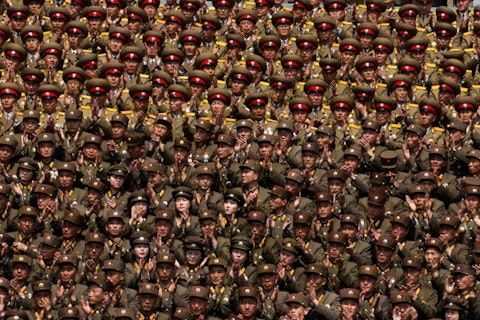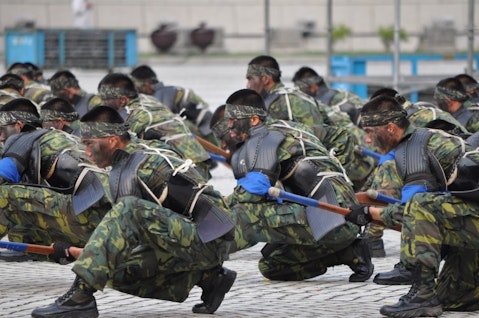These 10 strongest countries with compulsory military service have forced upon their citizens an obligation to give up a sizeable chunk of their lives in order to serve in their armed forces.
Countries with compulsory military service mostly come in two flavors. Type A would be small countries facing significant national security threats and in dire need of a strong and numerous army. The best example of this is Israel. The other type would be totalitarian regimes who need to maintain large armies for both outside and internal threats. There is some overlap between the two and Venn diagram of our list of 10 strongest countries with compulsory military service would be very interesting, but we’ll leave that to our readers. Meanwhile, if you are interested in reading about the military that much, don’t skip our article on 10 most powerful countries in the world: military.

Astrelok / Shutterstock.com
In order to rank the strongest countries with compulsory military service, we used the size of their military budgets from Stockholm International Peace Research Institute. The info on compulsory military service came from the CIA World Factbook. Let’s take a look, shall we?
10. Taiwan
Military budget in 2015 in USD billions: 9.8
Compulsory Service Length
Men: 4 – 12 months, depending on age
Women: None
The official name of the Taiwanese military is the Republic of China Armed Forces. The name vexes their neighbors in the People’s Republic of China to no end, so it is seldom heard outside of Taiwan. The main goal of Taiwanese army is repelling an invasion from the mainland China. Considering the resources both countries have at their disposal, it doesn’t take a genius to conclude that they have a lot on their plate. Compulsory military service is a way of securing a sufficient number of active troops and a large trained reserve pool to be activated in case of war. Recently Taiwan made some changes in their conscription law, allowing for all males born after 1993 to serve just four months in mandatory basic training. The idea is to increase the professionalism in the active service, while still maintaining a high level of trained reserves.






